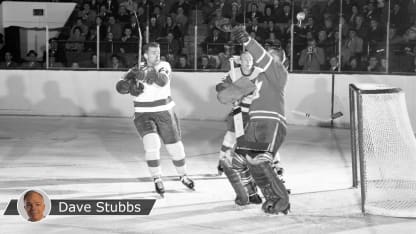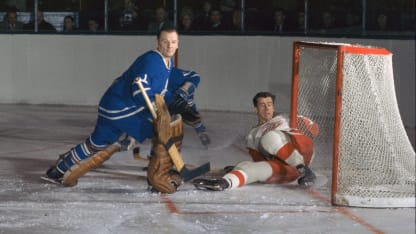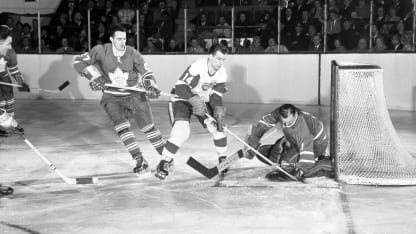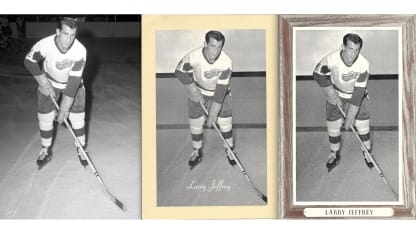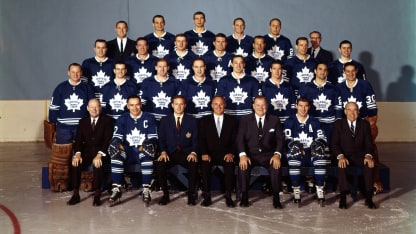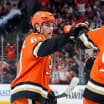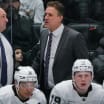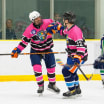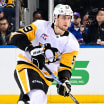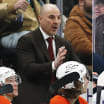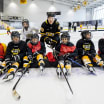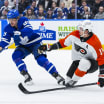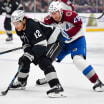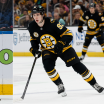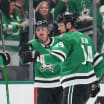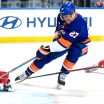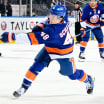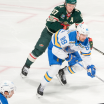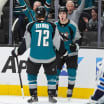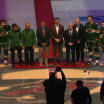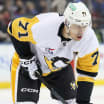Larry Jeffrey (second row down, second from the right) was a member of the 1967 Stanley Cup-winning Toronto Maple Leafs. MacDonald Stewart/Hockey Hall of Fame
Left unprotected in the 1967 expansion draft, Jeffrey was selected by the Pittsburgh Penguins on June 6, and later that day was traded to the New York Rangers for four players.
Jeffrey played two seasons with the Rangers before he was traded back to the Red Wings on June 17, 1969, for Terry Sawchuk and Sandy Snow. A final injury would end his career at age 29, his kneecap crushed during a preseason game against Cleveland.
"His kneecap is the size of a quarter," Red Wings coach Sid Abel told columnist Joe Falls, as reported by Bob Duff of Detroithockeynow.com. "I doubt Larry will ever be able to play again."
Jeffrey disagreed.
"Sid's wrong, the kneecap is the size of a nickel," he said. "But I'll play again. At least I hope I will. I just can't give up. I'm too young for that."
Jeffrey trained all season with the Red Wings but never saw game action.
He would scout for the NHL for the next eight years before leaving the game in 1978, working with his family on a 120-acre farm north of his hometown of Goderich, Ontario, where he raised racehorses and Hereford cattle. Jeffrey was larger than life everywhere he went for his devotion to Huron County, his good humor and his work for charity.
"Everyone in our community was touched in some way by Larry Jeffrey and we've lost, I guess, our hockey hero," Goderich Mayor John Grace said upon Jeffrey's death. "There is nobody in the community who didn't know Larry and he really was a true icon in Goderich."
